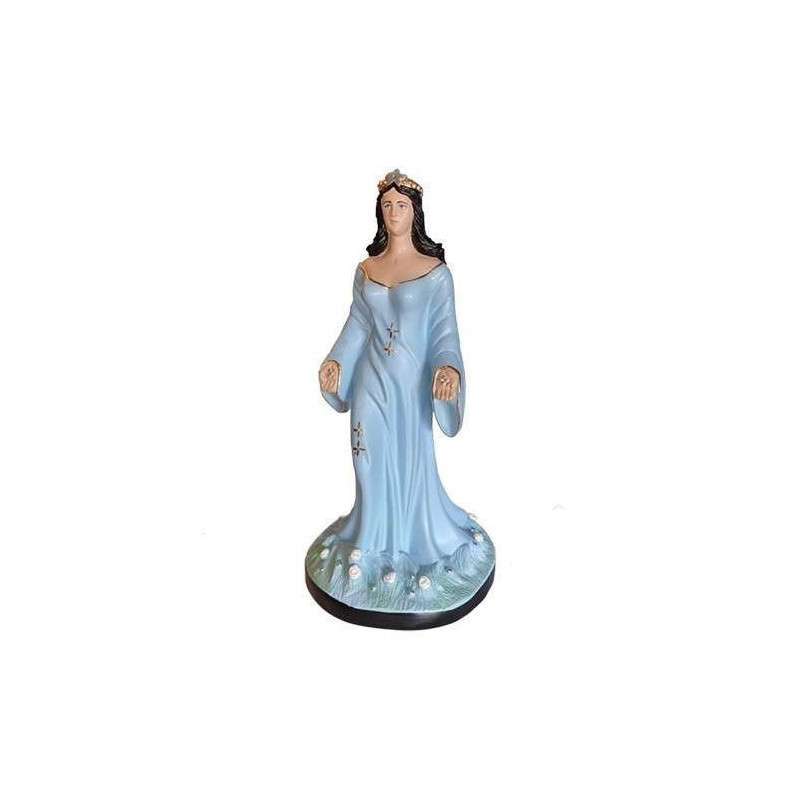



Yemanjá, Yemanjá, the Queen of the Seas
Material: Hand-painted plaster.
Size: Approximately 30 cm.
Quality Images Bahia, Brazil.

Security policy

Delivery policy
Iemanjá is a female orixá (African deity) of the Candomblé and Umbanda religions. Her name comes from the Yoruba language “Yèyé omo ejá”, which means “Mother whose children are like fish”.
Mother of the waters of the Yorubatians in Dahomey, from an African river orixá, she became a seafarer in the North of Brazil.
In Brazil, the goddess Iemanjá receives different names, among them: Dandalunda, Inaé, Isis, Janaína, Marabô, Maria, Mucunã, Princess of Aiocá, Princess of the Sea, Queen of the Sea, Mermaid of the Sea, etc.
Iemanjá is the patron saint of fishermen. It is she who decides the fate of all those who enter the sea. She is also considered as the “Brazilian Aphrodite”, the goddess of love to whom lovers turn in cases of disaffection in love.
On February 2nd, the largest popular festival dedicated to Iemanjá takes place in Salvador, capital of the State of Bahia. On this day, thousands of people dressed in white make a procession to the temple of Iemanjá, located on the beach of Rio Vermelho, where they leave gifts that will fill the boats that take them out to sea.
In Rio de Janeiro, the festivities in honor of Iemanjá are related to the New Year.
In Candomblés faithful to African origins, the cult is performed indoors, in the current ones the cult is outdoors, performed in the sea and in the lagoons, with Iemanjá often represented as a mermaid.
Devotees take to the sea various gifts that are said to be refused when they do not sink or when they are returned to shore.
Among the various offerings to the beautiful and vain goddess, there are flowers, jewelry, perfume bottles, soaps, mirrors and food. The ritual is repeated on other beaches in Brazil.
Celebrations in honor of Iemanjá also take place on August 15, December 8 and December 31.